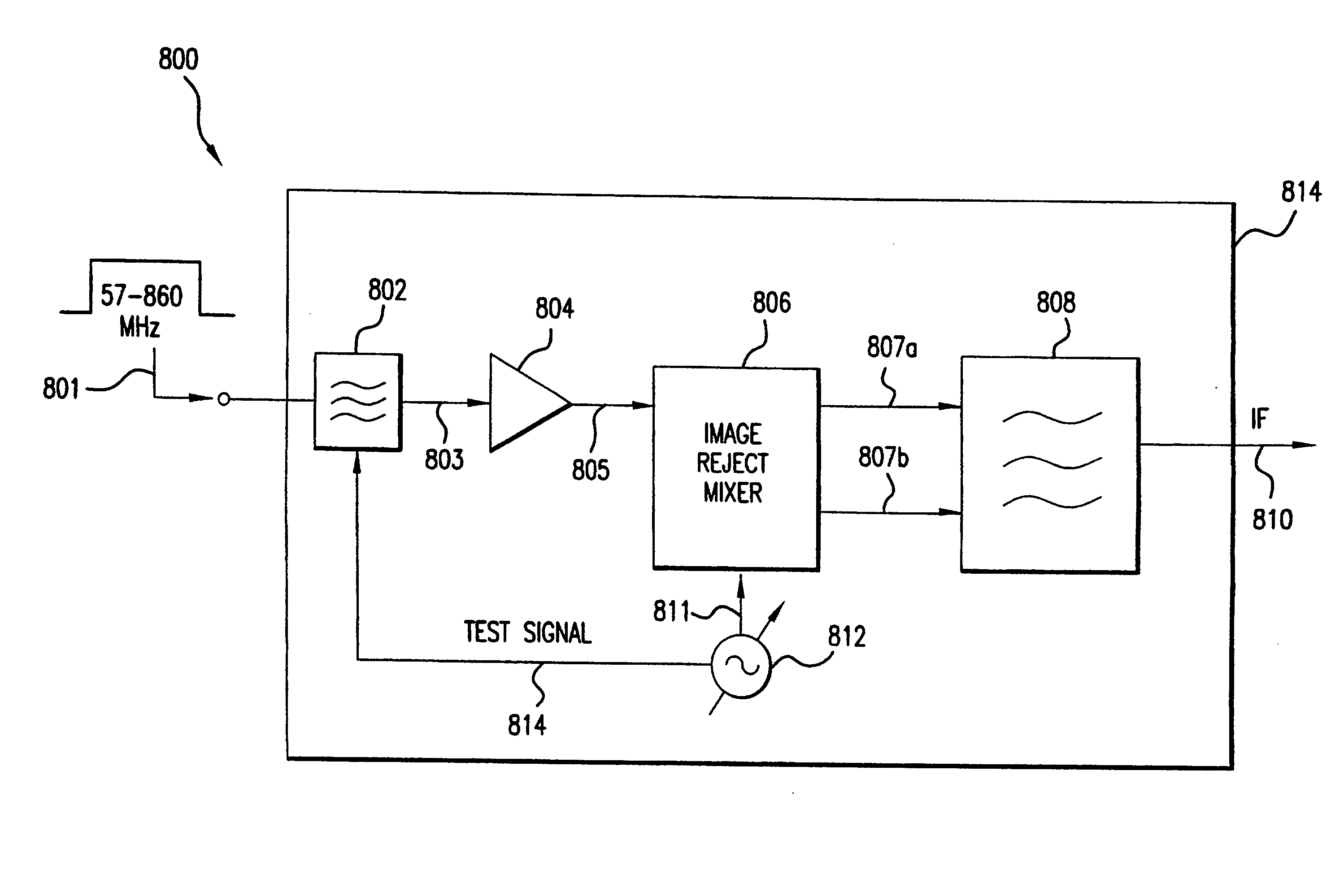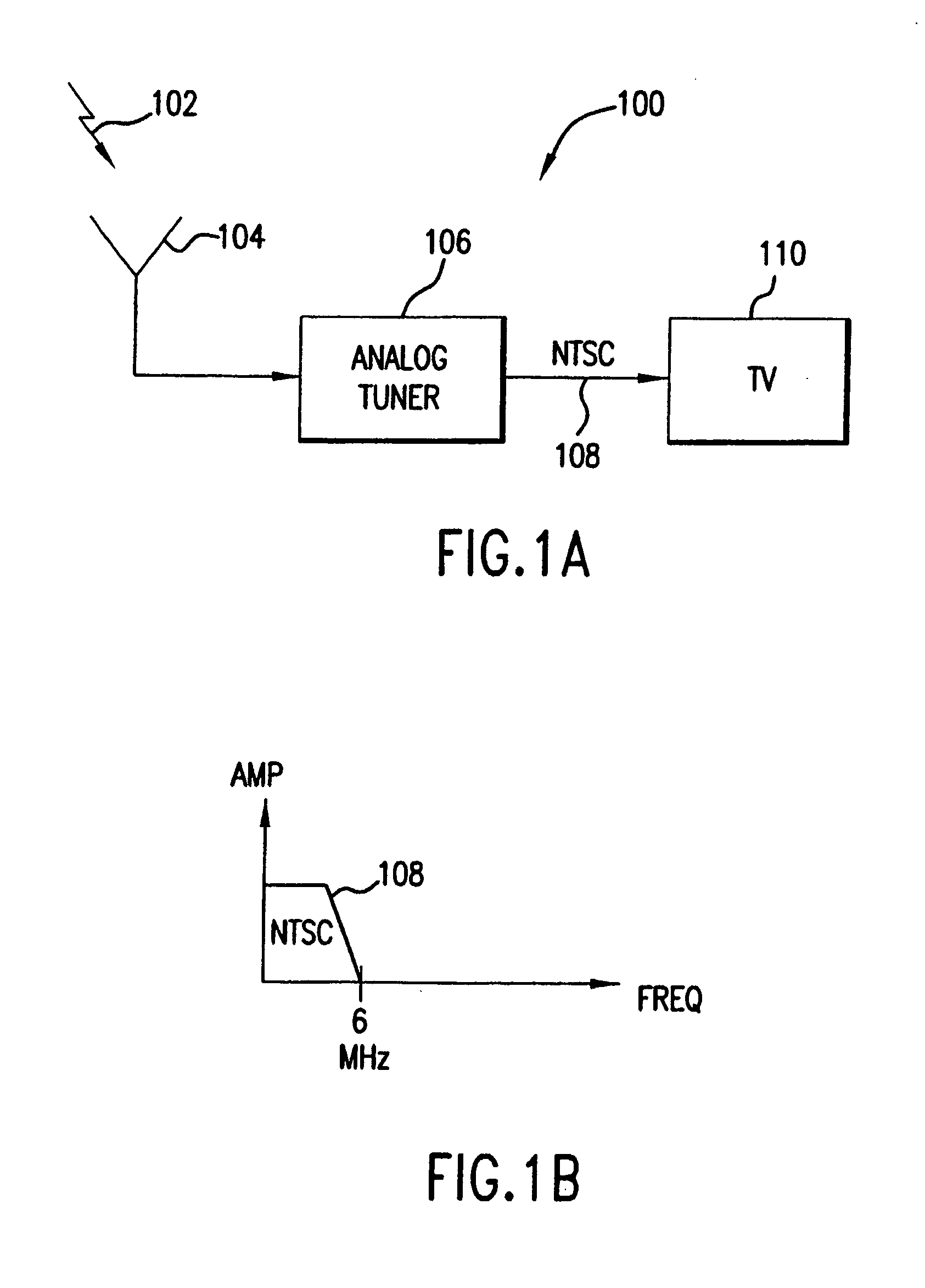Direct conversion tuner
a tuner and direct conversion technology, applied in the direction of transmission monitoring, angle demodulation by oscillation conversion, electrical equipment, etc., can solve the problems of inability to integrate on-chip with the other tuner components, low power requirements, and low image rejection. , to achieve the effect of low power requirements and high image rejection
- Summary
- Abstract
- Description
- Claims
- Application Information
AI Technical Summary
Benefits of technology
Problems solved by technology
Method used
Image
Examples
Embodiment Construction
1. Terrestrial, Cable, and TV Satellite Services
[0040] Television signals are transmitted at radio frequencies (RF) using terrestrial, cable, or satellite transmission schemes. Terrestrial and cable TV signals are typically transmitted at frequencies of approximately 57 to 860 MHZ, with 6 MHZ channel spacings. Satellite TV signals are typically transmitted at frequencies of approximately 980 to 2180 MHz. Regardless of the transmission scheme, a tuner is utilized to down-convert the received RF signal to an IF signal or a baseband signal, which is suitable for processing and display on a TV or computer screen. The desired tuner output can vary depending on the specific transmission scheme, as described below.
[0041] Terrestrial TV service is transmitted over the air from ground-based (as opposed to satellite-based) antennas. Terrestrial TV service can be subdivided into conventional analog TV and digital TV (including DTV and HDTV).
[0042]FIG. 1A illustrates a conventional analog T...
PUM
 Login to View More
Login to View More Abstract
Description
Claims
Application Information
 Login to View More
Login to View More - R&D
- Intellectual Property
- Life Sciences
- Materials
- Tech Scout
- Unparalleled Data Quality
- Higher Quality Content
- 60% Fewer Hallucinations
Browse by: Latest US Patents, China's latest patents, Technical Efficacy Thesaurus, Application Domain, Technology Topic, Popular Technical Reports.
© 2025 PatSnap. All rights reserved.Legal|Privacy policy|Modern Slavery Act Transparency Statement|Sitemap|About US| Contact US: help@patsnap.com



